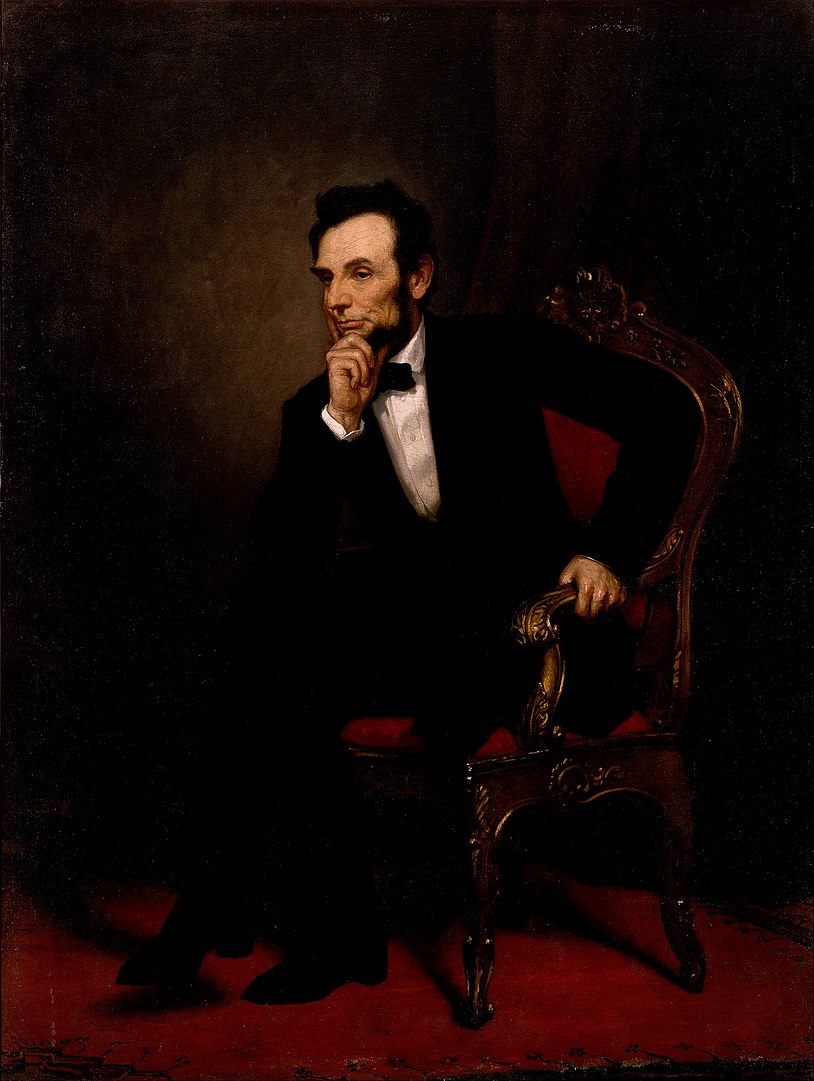
On the Perpetuation of America’s Institutions
The date of the 4th of July holds great patriotic significance for Americans since it marks their Independence Day. On this day, eloquent oratory is offered, parades are well attended, and fireworks are dedicated toward a celebration of all things American and of its founding. Yet, in addition to the celebratory revelry there is a need for a sober appraisal on the future of American institutions. There is low public confidence in many of these institutions such as Congress, the press, public health officials, and the presidency. The state of the rule of law in the United States has also become more fragile even in the nation’s capital. The American people are estranged from the institutions which are supposed to represent them. What can be done to repair this alienation and restore not just public confidence to the institutions but ensure that these institutions rightly reflect American values?
In 1838, Abraham Lincoln gave a speech to the Young Men’s Lyceum of Springfield, Illinois about the perpetuation of America’s institutions and here he noted a similar landscape of the deterioration of the rule of law that now exists in the present day. In particular he warned:
Yet, notwithstanding all this [the capacity of the American people to suffer much for the sake of their government], if the laws be continually despised and disregarded, if their rights to be secure in their persons and property, are held by no better tenure than the caprice of a mob, the alienation of their affections from the Government is the natural consequence; and to that, sooner or later, it must come.
With such a danger of alienation in our own time, we would do well to heed Lincoln’s warnings. This article will showcase how some of the reaction to the June 24th, 2022 Dobbs v Jackson decision provides an example of how these institutions have failed to uphold the rule of law and it will try to provide a template of how to move forward from here.
The Dobbs v Jackson decision found that abortion was not a constitutionally protected right and sent the matter back to the purview of the states for them to make as many or as little restrictions as those states want. The ruling had a fivefold argument over why abortion was not constitutionally protected: (1) that Roe and Cassey usurped the normal democratic process in a failed attempt to resolve a politically sensitive matter, (2) that these previous decisions regarding abortion had fabricated law and failed to do a relevant historical review of the customs, laws, and traditions of the American people, (3) that those rules and standards derived from Roe and Cassey proved unworkable in execution, (4) that Roe and Cassey led to distorted effects on other areas of law, and (5) that overruling these decisions would not upend substantial reliance interests (see pages 43 to 66 of the Dobbs decision for a detailed analysis). This decision on a politically salient topic obviously provoked great controversy. Many an article have been written defending the verdict as just in its allowance for the right to life of the unborn to be acknowledged or attacking the verdict as unjust in allowing the taking away of women’s reproductive choices. Some noted with concern the heated rhetoric unleashed when the verdict was announced, while also noting that abortion rights may be better secured and settled by a public vote than by the decision of nine justices on a remote court.
It is not the rhetoric that followed the decision which is the main subject of this article but rather the illegal actions taken prior to the announcement of the verdict and encouragement of these actions by public officials. One could disagree with the leaked draft or the final draft of the verdict all one likes. It is not illegal to protest or applaud a Supreme Court decision (or the prospect of such a decision). Abraham Lincoln, a future president of the United States, himself protested the infamous 1857 Dred Scott decision on the grounds that the Court had fabricated law, history, and was at odds with the plain and reasonable reading of its own source material, in particular that of the Declaration of Independence, used to come to that decision. It is not this dissent that threatens public confidence in the institutions of the United States.
It is or rather was the illegal congregation of targeted protestors outside the homes of the conservative justices in question with the aim of making the justices alter their decision. This is a violation of both federal and state picketing laws whereby one cannot seek to influence a judge over a pending decision. In the case of these protests, they were clearly targeted at the conservative justices by the fact that the homes were doxed and by the presence of, at times, very uncivil protestors surrounding these houses. An assassination attempt was also planned upon Justice Kavanaugh’s life. Even if the protests were entirely civil, however, they may still be in violation of picketing laws. Such was the situation that the Supreme Court had to ask Marylander and Virginian officials to put an end to people picketing at the justices’ homes. The governors of both these states in turn requested that the Justice Department enforce the law. Also witnessed after the leaked decision were attacks on pro-life centers throughout the country.
It was not only that the illegal picketing took place and that an assassination plot was hatched that is of great concern but that federal officials encouraged people to engage in illegal picketing activity to begin with. The Biden administration in particular here was a serial offender as their press spokespersons made a number of statements encouraging such conduct. For instance, Jen Psaki remarked as follows at a May 10th press breifing:
I know that there is an outrage right now, I guess, about protests that have been peaceful to date. We certainly continue to encourage that outside of judge’s homes and, that’s the president’s position. [emphasis added]
Whether the protests were peaceful or not is not the principal issue, that the administration was encouraging people to violate both state and federal law is! Nor was this the only time that Jen Psaki was dismissive of such criticism over where people protested. Even following the foiled assassination plot (which the Biden administration to its credit condemned), the same lack of concern for law was uttered by White House press secretary Karine Jean-Pierre. Her utterances were as follows:
We have not weighed in on where people should or should not protest. We have said that all Americans have the right to peacefully protest, whatever their point of view, but that attempts at intimidation and violence are totally unacceptable, and that they need to be condemned anytime they happen, regardless of who does it. [emphasis added]
This cavalier attitude by the Biden administration toward the law when it comes to protests they like in comparison to their attitude towards protests they are less in favor of has opened them up to criticism of having double standards and of them holding politicized attitudes when it comes to upholding the law. In effect then the Biden administration stands accused by its critics (and not without merit) of not upholding the rule of law that is basic to any functioning democratic system. I submit that such disrespect of the law and partisan encouragement to break the law by an American institution is one of the main causes behind the deterioration of public confidence in the institutions.
This has not been the first time that American institutions have taken a partisan lean. As I described in my first article for the Platform Mag, the press coverage of the Chauvin trial by their attempts to racialize it and excuse the looting and violence that emerged from protests over it were damaging to the rule of law in the United States. I also pointed out in the same article that the response by public health officials in approving of some protests while disproving of others was also very inappropriate. In another article for the Platform Mag, I criticized the inappropriate conduct of some journalists and their attempts to insulate themselves and their profession from public criticism. All these things point to how various institutions, which the public expects to be professional and neutral, are run by people who do not hold themselves to these expectations. Instead, these institutions are swept by the partisan passions and fads of the moment rather than dedicated toward a more sober and objective analysis. This needs to change if these institutions are to restore public confidence in them. As Lincoln put it in his aforementioned Lyceum Address:
Passion has helped us; but can do so no more. It will in future be our enemy. Reason, cold, calculating, unimpassioned reason, must furnish all the materials for our future support and defence.--Let those materials be moulded into general intelligence, sound morality, and in particular, a reverence for the constitution and laws: and, that we improved to the last; that we remained free to the last.
It is time for our institutions to return to a general state of reverence for the constitution and the laws of the United States and to be bulwarks rather than breakers of the rule of law. Those that break the law should be, after a fair trial, sentenced appropriately. Those officials who refuse to carry out the law and encourage such lawbreaking should be expunged from the civil service. These actions are the appropriate measures to restore public confidence and they ought to be taken post haste.
